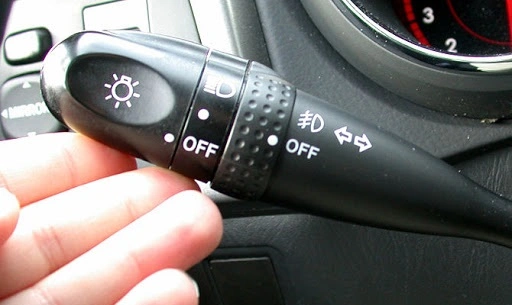Yes, it is illegal to not use turn signals when required in the United States. Traffic laws in every state mandate the use of turn signals to indicate lane changes, turns, and other maneuvers that might affect other drivers, cyclists, or pedestrians. Failure to signal can result in fines, points on your license, and even liability in accidents.
Why Turn Signals Are Legally Required
1. Promoting Road Safety
- Turn signals are essential for communicating your intentions to others on the road. This reduces the risk of accidents by allowing other drivers and pedestrians to anticipate your actions.
- Common situations requiring turn signals include making a left or right turn, merging onto highways, or changing lanes.
2. Uniform Traffic Laws
- State traffic codes align with the Uniform Vehicle Code, which requires drivers to signal their intentions at least 100 feet before making a turn or lane change. Some states, such as California, specify this distance as 200 feet on highways.
3. Preventing Liability in Accidents
- If a failure to signal contributes to an accident, the driver who did not use their signal can be held liable. This is often cited as negligence in personal injury lawsuits.
Legal Consequences of Not Using Turn Signals
1. Traffic Violations
- Failing to use a turn signal is considered a moving violation. Penalties include fines that vary by state, typically ranging from $20 to $200, plus court fees.
- Some states, like New York, treat repeated offenses more harshly, adding points to your license that could lead to suspension.
2. Negligence in Accidents
- In many states, not using a turn signal can be considered a form of negligence or reckless driving if it contributes to an accident.
3. Driver Education Penalties
- New drivers in some states may face additional consequences, such as mandatory driver improvement programs, if caught failing to signal.
State-Specific Laws on Turn Signals
1. California
- Drivers must signal at least 100 feet before turning or changing lanes in residential areas and 200 feet on highways. Violations can result in a fine of around $238.
2. Texas
- Turn signals are required for any lane change or turn. The law emphasizes signaling even when no other vehicles are present. Fines range from $50 to $200.
3. Florida
- Florida requires drivers to signal at least 100 feet before turning or changing lanes. Violations can lead to a fine of around $30, plus court costs.
4. New York
- New York law mandates the use of signals for all turns and lane changes. Failure to signal is a moving violation with fines up to $150 and three points on your license.
Common Scenarios Where Turn Signals Are Required
1. Changing Lanes
Drivers must signal their intent to switch lanes to allow other vehicles to adjust their speed and position.
2. Turning at Intersections
Using turn signals at intersections is critical to alert other drivers and pedestrians of your intentions.
3. Entering or Exiting Parking Lots or Driveways
Signaling when entering or leaving driveways or parking lots is legally required to avoid conflicts with other vehicles.
4. Merging onto Highways
Signaling while merging provides other drivers with time to create space or adjust their speed.
Related FAQs
Q1. Can I be ticketed for not using a turn signal when no one is around?
Ans: Yes, in many states, you can be ticketed for failing to signal even if there are no other vehicles or pedestrians present. Laws generally require signaling for all maneuvers.
Q2. How far in advance should I signal before turning?
Ans: Most states require signaling at least 100 feet before a turn. On highways, this distance may extend to 200 feet.
Q3. Is it illegal to turn without signaling if my car has automatic lights?
Ans: Yes, even with modern vehicles equipped with adaptive features, drivers are responsible for manually using their turn signals.
Q4. Can failure to signal lead to higher insurance premiums?
Ans: Yes, a ticket for failing to use turn signals can add points to your driving record, potentially increasing your insurance premiums.
Q5. Are cyclists and motorcyclists required to use turn signals?
Ans: Yes, most states require cyclists and motorcyclists to use hand signals or their vehicle’s built-in turn signals to indicate direction changes.
Conclusion
Failure to use turn signals is illegal across the United States and can have serious consequences, including fines, points on your license, and liability in accidents. By signaling your intentions, you ensure safer roads for everyone. Familiarize yourself with your state’s specific traffic laws to avoid penalties and improve road safety.

